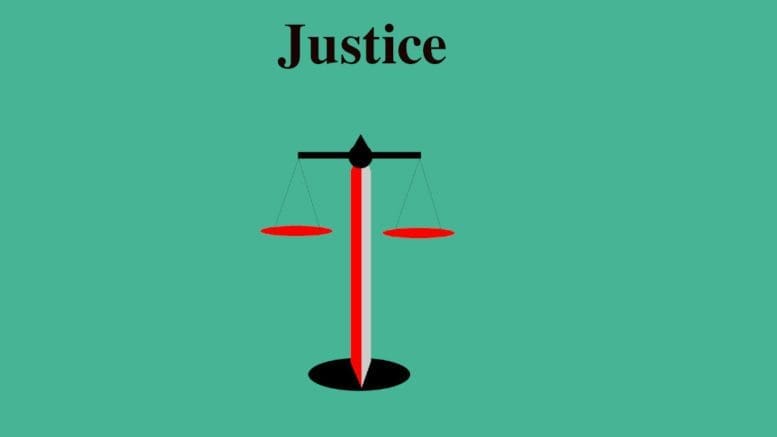by Stanley Dunlap, Georgia Recorder [This article first appeared in the Georgia Recorder, republished with permission]
March 12, 2023
Georgia’s legislators head into the final stretch of a 2023 session with a number of tough-on-crime bills that will escalate criminal penalties for unruly protesters, misdemeanor offenses and street gangs and shift the balance of power of prosecutors and judges.
Several Republican-backed law-and-order bills cleared the March 6 deadline for legislation to advance to the opposite chamber. As the session concludes on March 29, Republican lawmakers are following through on their campaign promises of setting stiffer minimum sentences, requiring cash or property bail to get out of jail for a greater number of misdemeanor offenses, and creating ways to punish county prosecutors who have been accused of being soft on crime.
Those who oppose the idea of locking up more people for longer periods of time criticize these strategies as running counter to numerous studies and the findings of the former GOP Gov. Nathan Deal’s Georgia Council on Criminal Justice Reform. Rehabilitation services, not jail time, are the best method of reducing recidivism and giving people convicted of crimes a better chance of living a productive life, according to the recommendations of Deal’s signature policy initiative.
Republican Gov. Brian Kemp, Lt. Gov. Burt Jones and the Senate Majority Caucus have so far succeeded in advancing priority legislation that increases penalties for street gang offenses and gives state law enforcement more latitude to pursue domestic terrorism cases.
Kemp’s signature crime bill increases the mandatory jail time for gang recruitment to five years and doubles that minimum sentence if a person recruits a minor or someone with a disability.
Senate Bill 44 calls for anyone convicted of street-gang offenses to serve the full sentence locked behind bars. Meanwhile, leniency can only be granted if the defendant assists in convicting the gang members.
Critics of the legislation counter that Georgia law is vague in determining what constitutes a street gang and it would disproportionately harm teens and minors who have older siblings involved in street gangs.
Cataula Republican Sen. Randy Robertson’s Senate Bill 63, which cleared the Senate on Feb. 23, would add a laundry list of misdemeanor charges such as trespassing, fighting and theft, to offenses that require a person to pay cash bail or put up property as collateral. A judge can now release people charged with a misdemeanor from jail on a signature promising they will appear in court.
Supporters of the longer mandatory sentences and cash-bail policies argue that they will cut down on a revolving door of people with a criminal record from commiting more crimes because lax sentencing guidelines set them free.
Republicans also aim to rein in some of the power that prosecutors hold in the judicial system.
Senate Bill 31 passed 35-20 on Crossover Day, and allows the attorney general’s office to be reimbursed for legal expenses by local prosecutors who decline to prosecute cases the state’s top prosecutor pursues.
Among the concerns raised by Democratic lawmakers and prosecutors’ associations is that the oversight committee and extending the attorney general’s authority could become politically-motivated tools. The law could also be used to target county district attorneys who do not arrest doctors and pregnant women for abortions after six weeks of pregnancy.
Fulton County’s Democratic District Attorney Fani Willis, who is conducting a special investigation into possible illegal interference by former President Donald Trump and his allies who tried to overturn the 2020 election, has criticized the legislation as an overreaction.
Another Senate bill would allow the attorney general or state law enforcement agencies to pursue domestic terrorism cases without the district attorney’s permission.
It would allow Georgia GOP Attorney General Chris Carr to pursue charges against demonstrators who sometimes become violent and destructive, like during the “Stop Cop City” protests over a planned Atlanta police training complex.
Another proposed protest crackdown that would make it a felony to riot was approved by House legislators with a 98-to-73 vote.
And a second House bill would carve out a new arson offense for setting a police car ablaze and allow a judge to fine someone up to $100,000 for the damage or send them to prison for a minimum of five years – or both.
Criminal justice reform measures gain traction
Lawmakers also have several criminal justice reform proposals that have received strong bipartisan support in their respective chambers.
One of those bills that has been several years in the making is Raise the Age HB 462 sponsored by Republican Rep. Mandi Ballinger that could allow 17-year-olds who are first-time offenders and have not been charged with serious violent offenses to proceed in juvenile court. Georgia now treats 17-year-olds charged with a crime as adults.
A 12-member committee must determine it’s feasible and state funding must be allocated if the so-called Raise the Age law is approved. The shift to juvenile status for 17-year-olds wouldn’t take effect until 2025.
Ballinger has cited data during House committee meetings showing that keeping teenagers out of jails and prisons where adults are incarcerated gives younger offenders a significantly better chance of rehabilitation and provides them with privacy in not having their criminal records become public, which could hinder their career opportunities.
Republicans are not backing Democratic proposals to reduce gun violence by requiring firearm background checks and making it a misdemeanor to leave a loaded firearm where minors can get to it.
Georgia Recorder is part of States Newsroom, a network of news bureaus supported by grants and a coalition of donors as a 501c(3) public charity. Georgia Recorder maintains editorial independence. Contact Editor John McCosh for questions: info@georgiarecorder.com. Follow Georgia Recorder on Facebook and Twitter.
